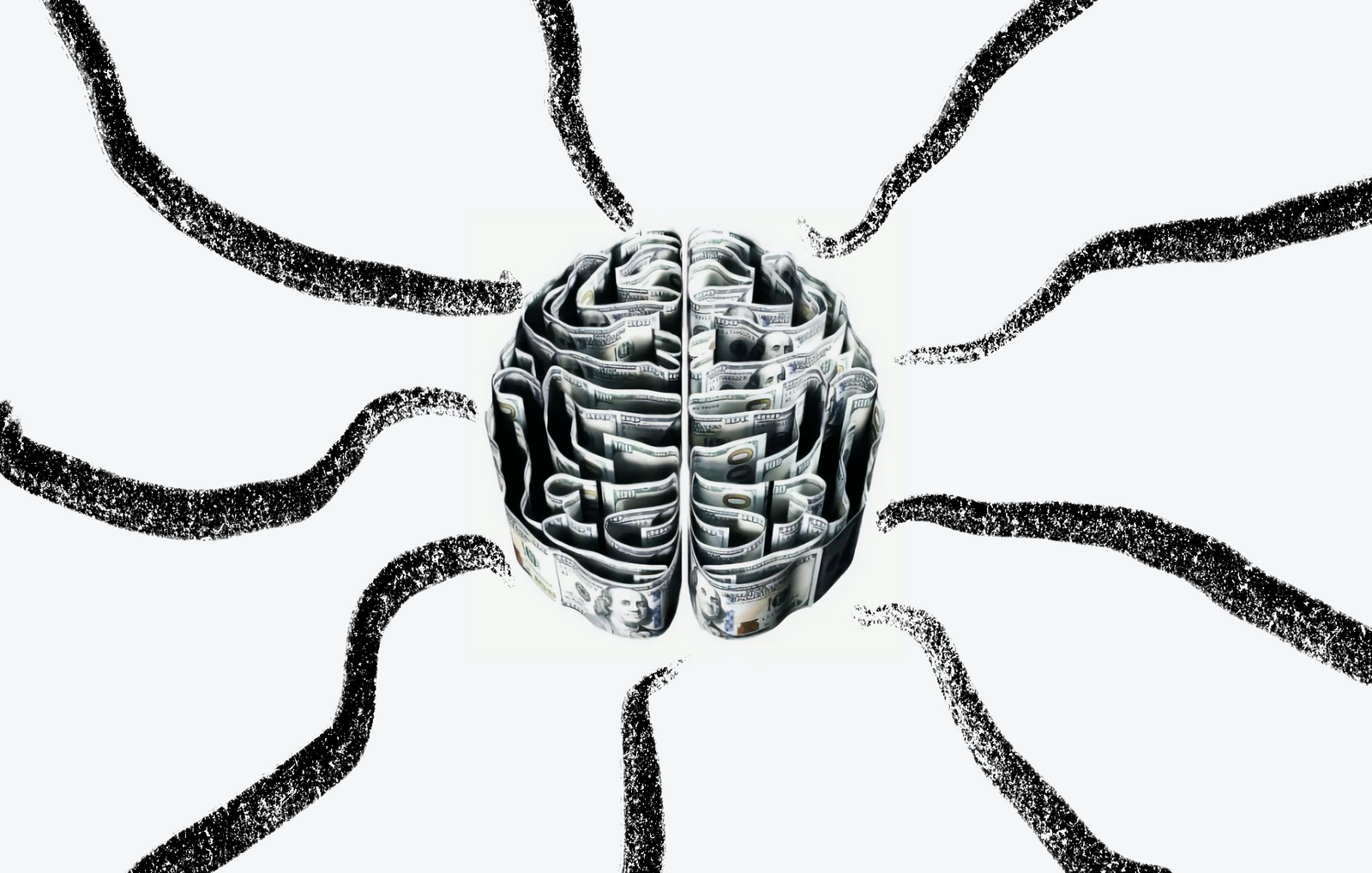What is underneath
productivity?

I’ve been obsessing about productivity for a long time. I used to spend a lot of time thinking about tools for thought and second brains. But these days, I spend most of my time thinking about metacognitions, the stress response, and interpersonal relationships.
In other words, it looks like I’m going soft. Or, at the very least, my interests are changing. But I’d actually argue that my interests are the same—I’m just approaching the same problems from a new angle. And it’s leading me to be a lot more productive than I have been in the past.
Let me explain. The shift in how I spend my time rests on a simple realization: productivity is not just software and notebooks and todo lists and frameworks and calendars and schedules and inboxes. It is all of those things, but it is also brains and bodies, memes and neurotransmitters. It is fingers that click keys, and furrowed brows, and emotions both fantastic and terrible. It is relationships: colleagues, managers, acquaintances, mentors, friends, and family. They push, pull, and undergird all of the work that we do in a much more significant way than any single software tool ever could.
Basically, if you turn over the rock of productivity you find a lot hiding underneath.
Underneath productivity is psychology, both individual and social. Underneath psychology is biology and neuroscience. And wrapped up in these layers, both supported by and supporting, is the humanities: literature, poetry, and philosophy.
If you want to understand productivity you could spend all of your time at the top of the stack. But my theory is that going deeper down—into psychology, biology, neuroscience, philosophy, and literature—is going to give me far more mastery over what comes further up.
When you go deeper into the stack you realize this: in order to be productive, you need to have an end toward which you are working. You also need to have a means or a strategy to get there.
Ideas in psychology, philosophy, and literature can help you understand your ends—to choose them more consciously, and to choose new ones if the ones you’ve already chosen aren’t serving you.
Ideas in psychology, biology, and neuroscience can help you understand your means: which ones are going to work for you and those around you—and why.
Here are some of the ideas from the last year that have most influenced how I understand myself: both my means and my ends.
The psychology of skimming on the surface
I have a kind of obsession with todo lists. I like to have everything written down because I want to make sure nothing falls through the cracks. But why? I realized that for me, the mere feeling of being on top of things is an end. And my means are elaborate, ever-changing todo list systems.
In the older version of myself, I never really questioned where this end came from. I wasn’t even fully aware it was an end. I was aware that I kept blanking on things I was supposed to do, or that I would forget some small detail that was crucial to a task. But I just dealt with it by relentlessly trying new means to stop doing those things.
But I’ve spent a lot of time understanding that part of myself, and I’ve come to a more nuanced understanding of where it comes from: I am just not very good at small details. Sometimes I can be! During some tasks I can get down into the guts of a thing for hours—like writing. But for many other tasks my mind works quickly and probabilistically and it’s really hard for me to get focused enough to really see into the details of things.
Contact Us · Search · Terms
©2022 Every Media, Inc





